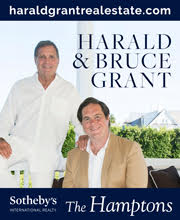Books of Tribeca: Our Laundry, Our Town
Alvin Eng has always been a storyteller — in fact that’s what first drew him to rock and roll as a teenager in the city in the ’70s.
“It was the authenticity of the voice,” he said. “More than any other medium at the time, that made sense to me.”
And for him as an artist, it just expanded from there. After a first lifetime in the music business, he started performing monologues in the ’90s, writing plays soon after and now this, his first book, another exploration in finding voice. “Our Laundry, Or Town: My Chinese American Life from Flushing to the Downtown Stage and Beyond” traces his family’s beginnings as the owners of Foo J. Chin Hand Laundry to his own careers in music, theater and performance, all on his path to finding and defining identity — “seeking American frames of reference with which to contextualize my own ‘outsider’ experiences and sensibilities.”
He reflects on his parents’ marriage, his days in a punk rock band, the inspiration he found in theater and performance, and also his frequent encounters with racism. But most of all he traces his discovery of self, from his life as a child to long after his parents had died. His plays, including “The Last Emperor of Flushing,” were also memoirs, but this book allows him to leave a permanent record. “Stories are the reservoir of lives — present, past and evermore. Learning to proudly tell my own stories has made me whole.”
Eng will have a book signing at Yu & Me Books at 44 Mulberry between Worth and Bayard on Wednesday, June 8, from 5 to 7p. And on Sunday, June 12, at 3p, there will be a reading and discussion with musical guest Skyler Chin at the Community Center at 21 Pell and Doyers.
Eng was born in 1962 in Queens — the same year, I must note, as the Mets — the youngest of five kids in a marriage that was arranged in China. The laundry was the family’s third, after ones in Jersey and the Upper East Side, and their personal lives were entirely entwined in the business. The family ate and did homework in the back room, laundered and ironed garments in the middle room, and greeted customers in the front. “The counter had a drawbridge of sorts — a cutaway countertop and gated swing door — to receive deliveries and children coming home from school.” They were also one of the few Chinese families in Flushing at the time.
As a young teenager, Eng interviewed the New York Dolls frontman Buster Poindexter (aka David Johansen) for the Flushing High School newspaper and that launched him into the music world — “Irving Plaza,” he says, “changed my life both as a teenager and as an adult.” Not long after, his punk rock band The Grips ushered him into performance. Throughout the early chapters of the book, Eng toggles between fitting in with his family and finding his place in the world of rock and roll. At one point, when he comes home with his fingernails painted black, his mother laughs at him and says in her broken English, “Ha, ha, Batman.”
He would go on to work in PR for the music industry, eventually exploring how the world of punk rock dovetailed with performance art, and taking in performances at Downtown spaces like La MaMa, Performance Space 122, Franklin Furnace. But it was a reading of “M. Butterfly” by the playwright David Henry Hwang — and the protests Hwang led against the Broadway production of Miss Saigon (when producers cast a Caucasian actor in eye prosthetics and skin bronzer as the Eurasian lead character) that changed his professional trajectory.
He has been writing ever since.
Eng’s plays and performances have been seen across the country and the world; his lyrics and memoir excerpts have been published in numerous anthologies; his storytelling and commentary have been broadcast and streamed on National Public Radio, among others. And he has taught at several colleges in full-time appointments, visiting professorships and residencies on the undergraduate and graduate level.
He is a two-time Fulbright Scholar in theater and U.S. studies, in residencies at CUNY and at the City University of Hong Kong. He performed his memoir monologue, “The Last Emperor of Flushing,” in his family’s ancestral Guangdong Province. His father died in 1977, the family sold the laundry, and his mother died in 2002. He and his wife, Wendy Wasdahl, have lived in Tribeca since 2004.
The book is clearly not the end of his creative career — he even started a rock group as a mid-life crisis response: the Emperors Club. But this latest effort is a legacy of sorts. “I guess I wanted to have a record of our family and what I they went through.”




















Thanks for finally writing about > Tribeca Citizen | Books of Tribeca:
Our Laundry, Our Town sửa nhà chung cư